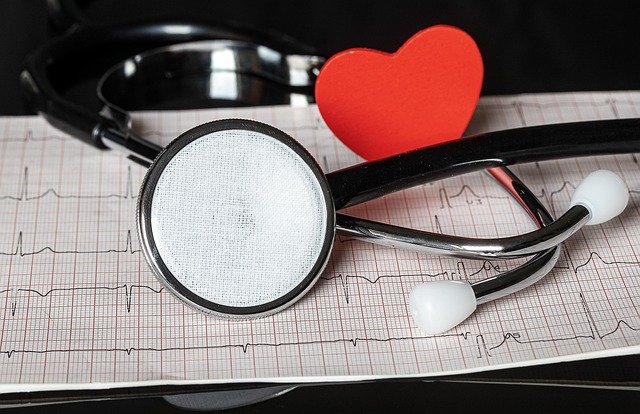Heart Palpitations: Causes, Symptoms, and When to Seek Care
Heart palpitations are the awareness of your own heartbeat — a fluttering, racing, pounding, or skipped-beat sensation that can come on suddenly and last seconds to minutes. They are common and often benign, but they can also signal an underlying medical issue when accompanied by other symptoms. Learn common triggers, how palpitations relate to chest sensations, and when to consult a clinician.

This article is for informational purposes only and should not be considered medical advice. Please consult a qualified healthcare professional for personalized guidance and treatment.
What causes heart palpitations?
Palpitations arise when the heart’s usual rhythm or rate is altered. Common causes include benign premature beats (premature atrial or ventricular contractions), rapid heart rhythms (supraventricular tachycardia), and lifestyle factors such as caffeine, nicotine, alcohol, and certain medications. Medical conditions that can contribute include thyroid disorders, anemia, fever, and electrolyte imbalances. In many people without structural heart disease, palpitations are intermittent and not dangerous, but persistent or worsening symptoms warrant medical evaluation.
Some palpitations are triggered by temporary, reversible factors — heavy exertion, dehydration, or stimulant use — while others originate from arrhythmias that may need targeted treatment. A clinician will consider the pattern, frequency, and accompanying signs to determine likely causes.
How to tell if palpitations involve the chest or the heart?
People describe chest sensations differently: fluttering, thumping, a skipped beat, or a heavy pounding. Palpitations are the feeling of the heartbeat itself, whereas chest pain or pressure may indicate the heart muscle or other structures in the chest are involved. Palpitations without pain are often rhythm-related; chest pain with palpitations could reflect ischemia, pericarditis, or non-cardiac causes such as reflux or musculoskeletal issues.
When palpitations are accompanied by new or severe chest pain, pressure, lightheadedness, fainting, or shortness of breath, those are considered warning signs. Diagnostic tools like an electrocardiogram (ECG), ambulatory monitoring (Holter), or imaging can help distinguish rhythm problems from structural or ischemic causes.
Can anxiety cause heart palpitations?
Yes. Anxiety activates the sympathetic nervous system and increases adrenaline, which raises heart rate and can create a strong awareness of heartbeat. Panic attacks commonly include palpitations, trembling, sweating, and a sense of impending doom. For many people, palpitations caused by anxiety are temporary and resolve as the anxiety subsides.
Distinguishing anxiety-driven palpitations from cardiac causes can be challenging on symptoms alone. A medical history that links palpitations with situational stress, panic symptoms, or generalized anxiety can suggest an anxiety component. Still, clinicians often perform basic testing to exclude cardiac problems before attributing palpitations solely to anxiety.
How does stress trigger palpitations and what helps?
Stress produces a physiological response—elevated heart rate, increased blood pressure, and hormonal shifts—that can provoke palpitations. Chronic stress may also worsen sleep, increase stimulant use (caffeine, nicotine), and reduce adherence to healthy habits, all of which raise the chance of experiencing palpitations. Practical measures to reduce stress-related palpitations include paced breathing, regular physical activity, sleep hygiene, limiting stimulants, and structured relaxation techniques such as progressive muscle relaxation or mindfulness.
If lifestyle measures are insufficient, targeted therapies such as cognitive-behavioral therapy or referral to mental health services can reduce anxiety and stress, and thereby reduce palpitations for many people. Combining behavioral strategies with medical assessment ensures both psychological and physiological contributors are addressed.
When to seek medical care for palpitations?
Seek prompt medical attention if palpitations are accompanied by chest pain, fainting, severe shortness of breath, sudden weakness, or prolonged lightheadedness. Also consult a healthcare professional if palpitations are new, very frequent, occur at rest, or if you have known heart disease, heart murmurs, or risk factors for coronary artery disease. A clinician can perform an exam, ECG, blood tests (thyroid function, electrolytes), and ambulatory rhythm monitoring to capture events.
Treatment options depend on the cause: lifestyle changes and reassurance for benign premature beats; medications like beta-blockers or antiarrhythmics for some arrhythmias; and electrophysiology procedures such as catheter ablation for certain sustained or symptomatic rhythm disorders. Decisions about treatment are individualized and typically follow diagnostic evaluation.
Conclusion
Heart palpitations are common and often benign, but they can stem from a wide range of causes including arrhythmias, metabolic issues, stimulants, anxiety, and stress. Understanding the pattern of symptoms, associated chest sensations, and presence of warning signs helps determine when testing or treatment is appropriate. For persistent, severe, or new-onset palpitations—especially with chest pain or fainting—consult a qualified healthcare professional for evaluation and management.






